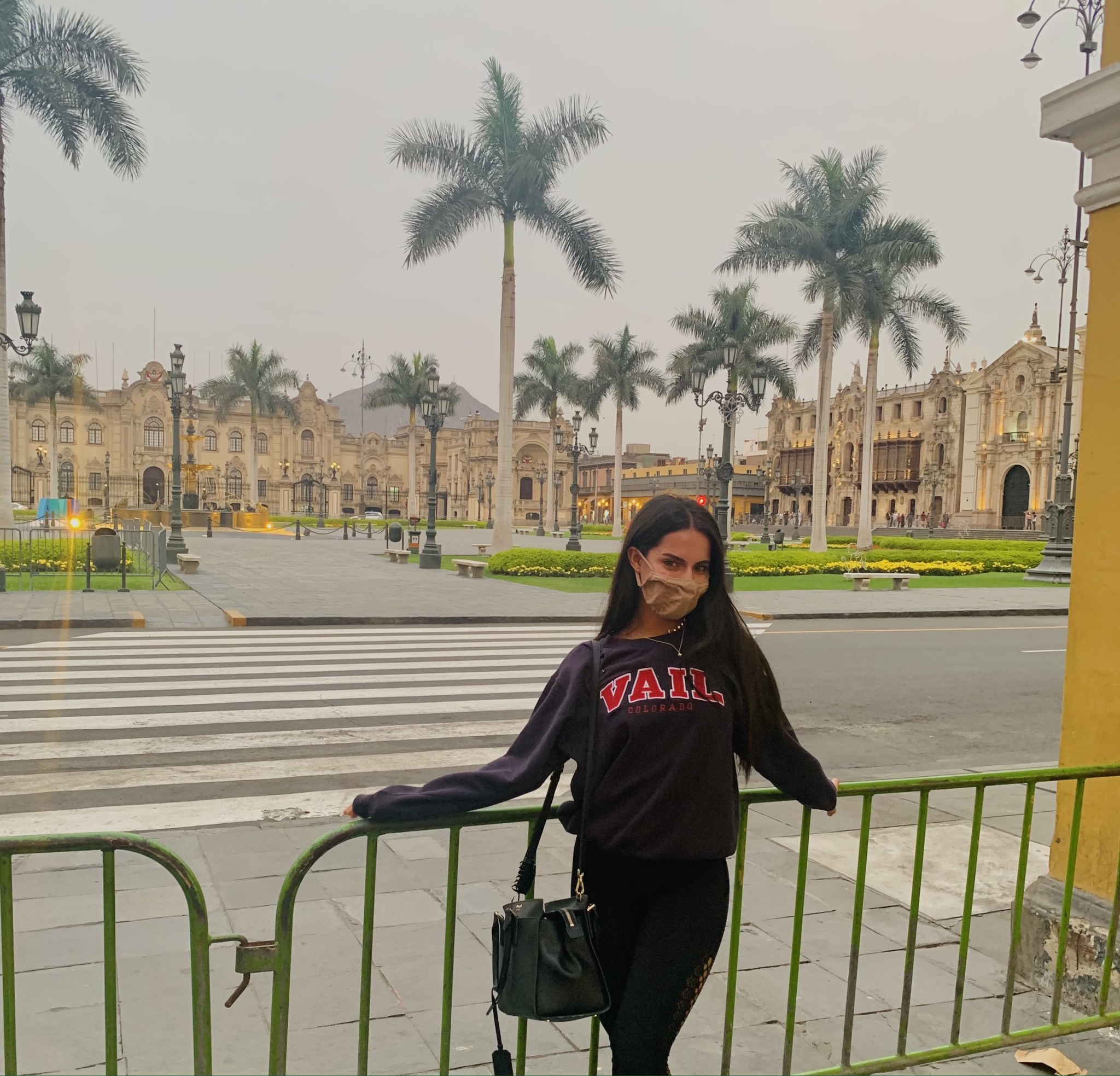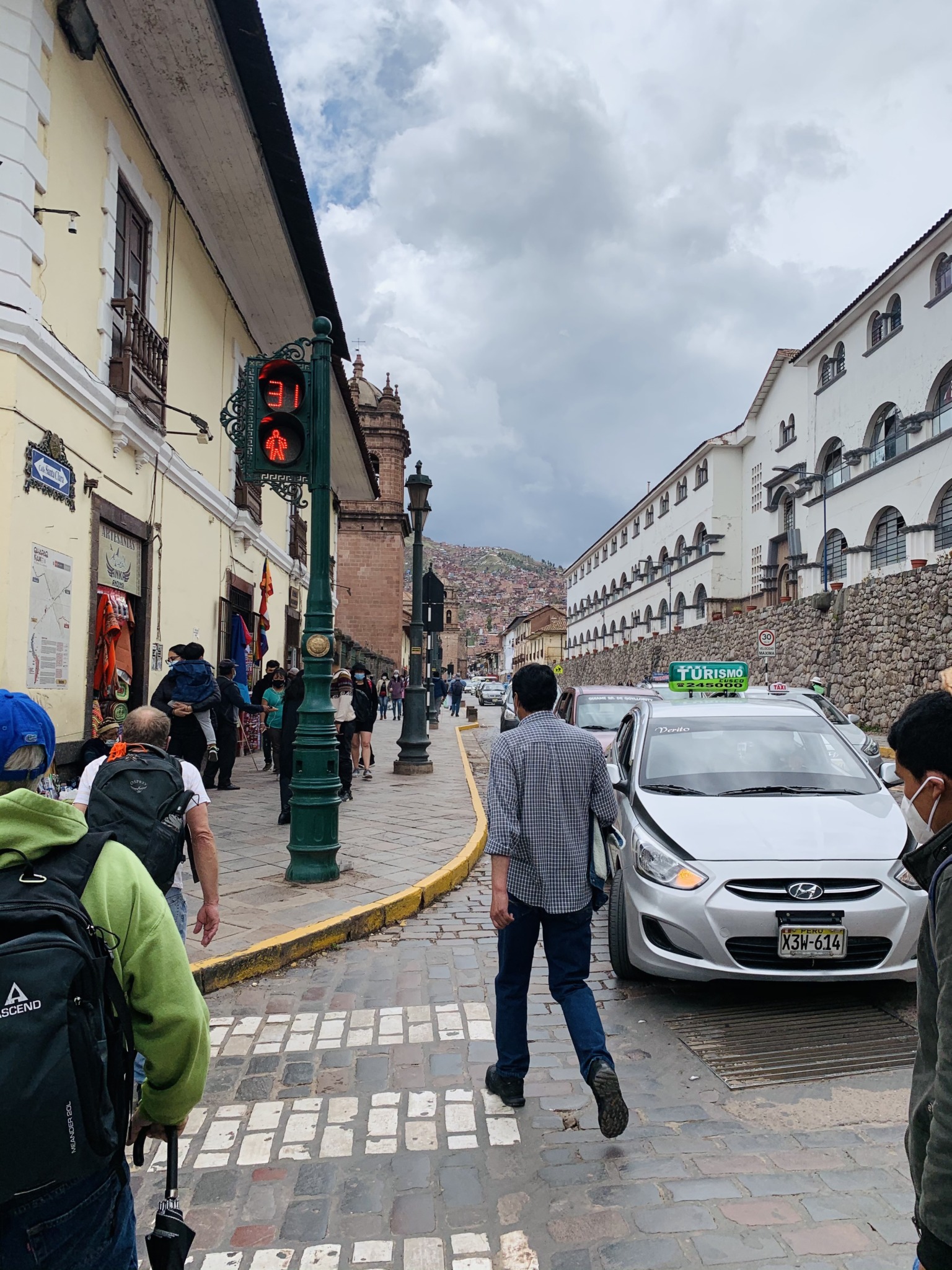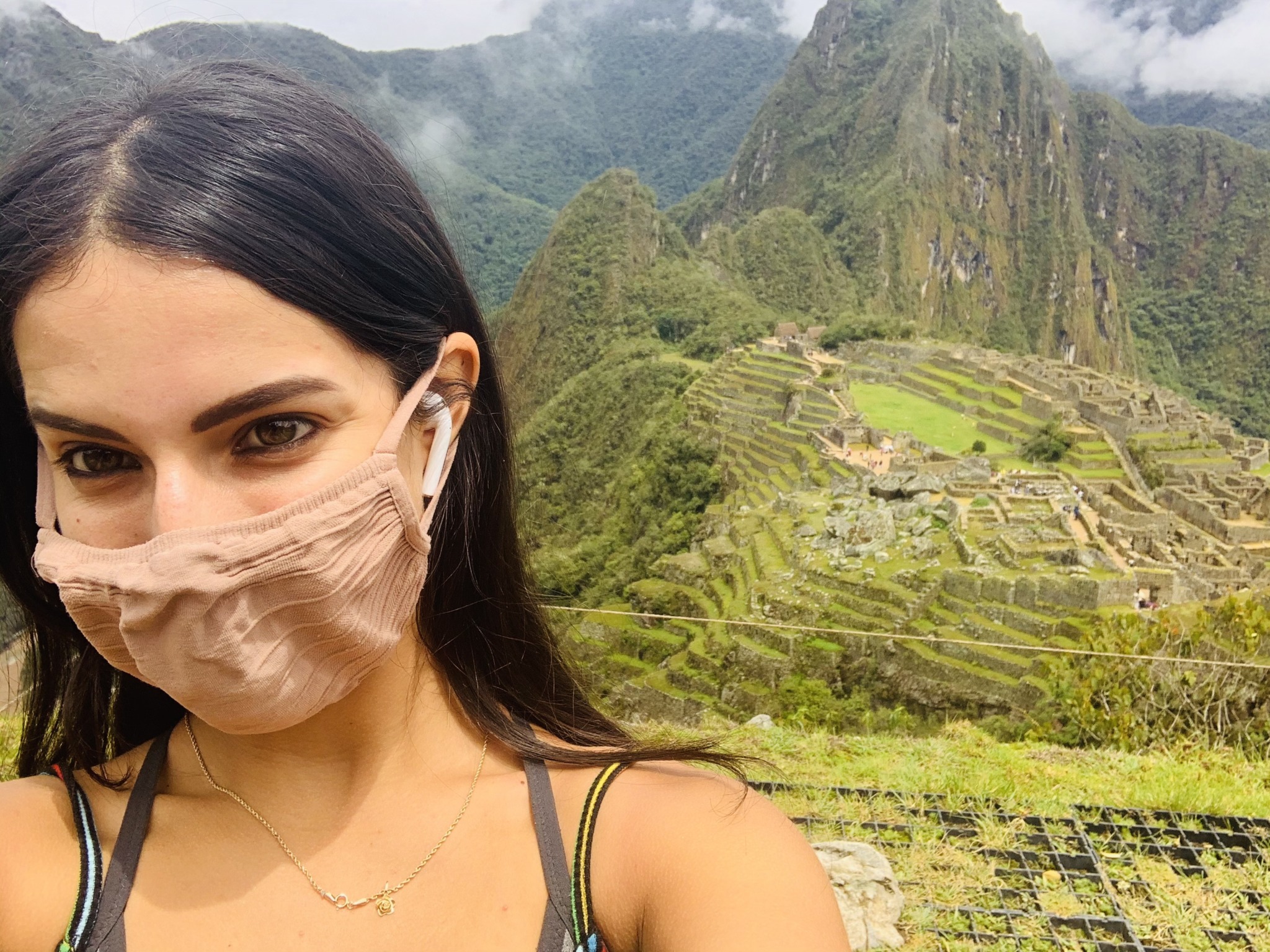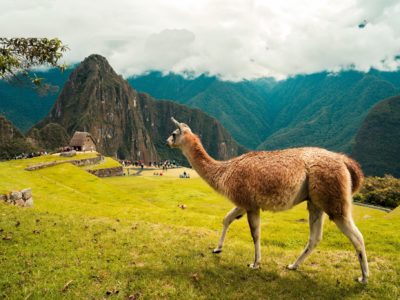For every cultural identity project ever assigned to me from elementary through high school, I always focused it on the nation of Peru. Considering my Lima-born mother raised me enjoying her native roots, and my peers rarely chose this country, Peru always seemed like the perfect choice. This made me feel not only unique, but proud to identify as a Peruvian. Well, half Peruvian, because I’m Cuban, too! Anyways, my pride for Peruvian culture has since followed me from childhood all the way to college.
When the opportunity arrived to visit Peru for the first time in my life, I felt more elated than how Monica Geller felt when she finally got engaged (a Friends reference I hope you understand; if not, just know I felt out-of-this-world excited). After all this time, I’m finally visiting the land of my ancestors, I thought to myself. I’m going to see the place I hold so dearly in my heart. Mi Perú.
Mask on and head high, I boarded the plane from Miami to Lima on Christmas Day.

At first, experiencing Peru was a dream come true. Everything I heard so much about was finally before me — the dark mountains touching the heavens, the ethereal clouds concealing the blue sky and bustling cars giving life to the streets. It all felt so vibrant and real. But the more I walked the path of my ancestors, the more I reflected on something I used to almost completely lack: their language.
I’m what scholars call a heritage speaker. I can speak in Spanish, but I wouldn’t say I’m fluent. Despite growing up in a household with two native Spanish speakers, my parents mostly spoke to me in English. While my maternal grandmother regularly spoke with me in Spanish, she wasn’t always present to help my proficiency in the language. Unfortunately, my Spanish abilities never fully developed. I can understand all conversations in Spanish, but when it comes time for me to speak the language, my sentences sound very rudimentary. Sometimes I mix up my conjugations and forget the words I know that linger somewhere in the back of my mind.
I experience a continuous brain fart while trying to communicate in Spanish.

Living as a heritage speaker brings me immense frustration because I can’t speak Spanish well, yet my Latin culture strongly shaped my upbringing. I sort of feel like an incomplete Hispanic. Though I’ve always felt ashamed of this inability to perfectly speak Spanish, it didn’t kick me in the gut until I arrived at college. At least I could practice my Spanish regularly at home. After all, I lived in Miami, so I constantly needed to speak basic Spanish each day. But withdrawing myself from that Latin bubble to attend the University of Florida in Gainesville meant adopting a new way of life with different people. And yes, before you ask, I did experience the infamous culture shock. Besides the crappy reality check, something else happened — I began to further lose the Spanish I knew.
I mean, seriously. Spoken Spanish among Gainesville residents? Basically nonexistent. I started to forget words in Spanish at a faster rate than Gen Z TikTokers cancel any content deemed too “sensitive.” The point is, my life became 10 times more embarrassing than it already seemed. Though I was the Hispanic girl among my very American friends, I didn’t feel any more different than them besides my evidently Latin physical features and the fact that I preferred a bit more salt on my food. Overall, I felt like—oh gosh, what a disgrace for a Hispanic person—a gringa. AKA, someone considered a foreigner to Latin cultures, but most notably, someone who can’t speak Spanish.
And that’s when I had it.

In the past, I tried many things to improve my Spanish—Youtube videos, books and music, f–king Rosetta Stone—but I never succeeded. So, my last resort was college. I never pictured myself taking Spanish classes in college, but I’m grateful I started to during the beginning of my junior semester… psst, it’s never too late! Fortunately, my skills were enough that I didn’t start at level one. Instead, I got placed right where I belonged because my incredible university housed a Spanish Heritage Language Program. The program, for struggling heritage speakers like me, taught us to maintain the language of our ancestors. It helped students overcome their language insecurity and proudly communicate in Spanish. A program perfect for me.
Thanks to the program, I not only improved my language abilities, but I made friends with my fellow heritage speakers. We all shared the same ambition – pride for our Latin culture and eagerness to unearth more of it through the beauty of the Spanish language. You must wonder, how does this all tie in toward my recent trip to Peru? I effortlessly communicated with my family in Lima — especially with my grandmother, my OG Spanish teacher.
Also, I regularly held conversations in Spanish with people for more than five minutes, which felt awesome considering I couldn’t do that three years ago. Although I’m still improving my Spanish through the UF heritage program, the little I’ve learned has brought me quite far along. My visit to Peru not only gave me a greater incentive to improve my Spanish-speaking abilities, but opened my eyes to how special I perceive my family’s rich ancestral history.
I feel utterly grateful to count this cultural endeavor toward my college experience because I’ll forever associate my identity journey with my educational growth.

Just because you don’t speak the language of your ancestors doesn’t make you less of a person associated with that cultural identity. Nevertheless, possessing a hunger to learn that language can break down so many mental, physical and metaphorical barriers than you can imagine. If the opportunity arises during your college years, take a trip to your native land to feel inspired! Nothing feels better than understanding more about the past people who made you who you are.



















